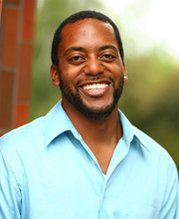
Kyle Haden, the new artistic director of the Ashland New Plays Festival, follows the legendary Doug Rowe, who retired after spearheading ANPF for many years. Haden served as an actor and educator at the Oregon Shakespeare Festival and a faculty member in Theater Arts at Southern Oregon University.
EH: What is your interest in developing new theatrical works?
The main focus of ANPF is our Fall Festival. We solicit scripts from playwrights around the world. This year we had a cap for the first time: We took the first four hundred that submitted. We have a ton of volunteer readers. Each play is read by several people. Folks get together in small groups and discuss the plays.
Eventually every play is scored and ranked to get to four plays that we feel have real promise. None of the plays have ever been produced. When the playwrights come to Ashland in October, they are working with directors and a team of actors to get the chance to hear their plays out loud.
Some playwrights choose to workshop their plays, meaning that they are: writing new pages, writing new dialogue, playing around with scenes, maybe they’re moving a scene, changing the ending, cutting a scene here or there. The playwright and the director work together; they may want to tear the play apart.
Sometimes the playwright just wants to put the play on its feet with great actors. Hopefully we are helpful in getting the story clear: getting the moments articulated that the playwright isn’t quite sure about.
For 2016, we have the Women’s Invitational. We’ve invited 50 top female playwrights to submit their work. We have a team of readers selecting the plays, and we’ll winnow it down. We are going to bring three plays here in March, the 25th, 26th, and 27th. It will be in the Recital Hall at Southern Oregon University.
We’ll bring in directors and actors, and they’ll work on the plays for a week and put the plays up. The people we’ve invited have all had major productions. The audience will see some high-caliber playwrights.
The idea of gender parity has been a hot-button issue lately. People are aware of it and talking about it. Three quarters of the produced plays have been written by men. We’ve had so many plays coming from a male point of view, it’s time we had plays from a woman’s point of view. Diversity and inclusion is important to me, getting a chance to tell different types of stories.
EH: Do you think the plays will be intrinsically different?
KH: I’m sure the stories they have to tell, and the perspectives that they have, are going to be rich, interesting, intriguing and exciting.
EH: What is it about the medium of theater that some of us find so engaging?
KH: It is an immediate two-way conversation. I actually feel that theater is going to become more important as we progress in the 21st century. Film and TV are one-way communication. People have worked hard to craft a moment: To make it look exactly the way they want; to have the special effects; the explosions; the sounds. It’s fantastic, but it never changes.
Face-to-face interaction is right there in theater. It’s two-way communication. As an audience member, the things you find funny, the things you find sexy, the things you find scary: You are giving me (the actor) all that information in real time. My performance is being changed by this. The performance that I give on Thursday night is going to be completely different than the performance that I give on Friday night, because there is a completely different group of people in the audience, and they’re going to be affected in a completely different way. The art is the same art, but the art changes all of the time.
There is something so fantastically human about an audience, watching actual people tell a story in real time. Even though technology is so great, and it allows us to do so many things, there’s still a barrier there. We still can’t quite reach through it and touch a person. Here you can. Theater lets you do that.
I feel that we’re on the brink of theater becoming even more important because of that. I think that we need to look at how we let people access it, to make sure that it’s not something that only “rich” people can do, only “cultured” people can do. We’ve got to look at ways that people can access it. But I feel that theater is going to be an important part of the 21st century, because it gives us something that other entertainment mediums can’t.
There are more playwrights out there than ever before who are trying to get their work done, and there is more of an interest in new work. We (at ANPF) are hoping to get to a point where we can be a place where we workshop plays. We are lucky to be in Ashland, with a core group of readers and volunteers who are passionate about theater and love being part of the process of creating new plays.
We are also in a town with a ton of literate theater-goers who are passionate about plays. I think that there’s an audience for people seeing plays that are in process. I would love to see us get to is where we workshop plays in front of a safe and friendly, knowledgeable audience. I feel that’s a real service that we can do. That’s the long term hope. It’s about the process of creating.